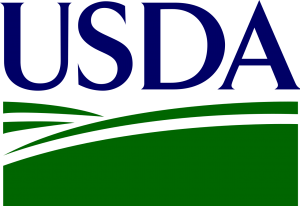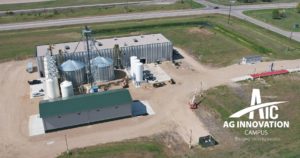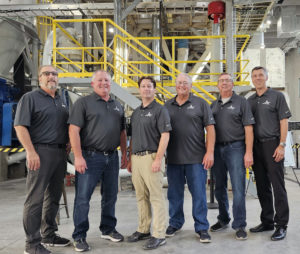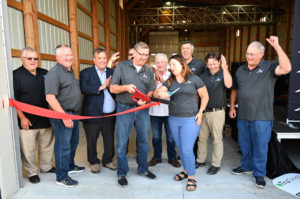American Vanguard Releases Sustainability Report
 American Vanguard Corporation has released its 2023 Corporate Sustainability Report, a detailed update of the Company’s commitment to the principles of Sustainable Agriculture, which is at the center of its Environmental, Social Responsibility, and Governance (ESG) initiative.
American Vanguard Corporation has released its 2023 Corporate Sustainability Report, a detailed update of the Company’s commitment to the principles of Sustainable Agriculture, which is at the center of its Environmental, Social Responsibility, and Governance (ESG) initiative.
With the 39-page report, the Company focuses on the central role that agriculture can play in mitigating climate change. More specifically, the Company profiles its portfolio of Climate-Smart Ag solutions, including soil health products, its proprietary SIMPAS® precision application system, and MRV (measure, record, verify) platform ULTIMUS®. The Company also reports on its progress with its sustainability initiatives and provides an update of safety and environmental metrics at its manufacturing plants and laboratory facilities. To improve transparency, in future reports the Company will detail plans to expand reporting, to include Scope 3 GHG emissions, warehouses, office spaces, and international businesses, as well as social and governance metrics.
“At American Vanguard, we recognize the importance of our role and effect on the planet – from our local communities to the global environment,” said Eric Wintemute, Chairman and Chief Executive Officer, of American Vanguard. “With this 2023 Sustainability Report, we reiterate our commitment to environmental and social responsibility featuring our efforts to promote diversity and inclusion within, while engaging in community outreach outside the Company. We strive to improve the well-being of our employees and those in our communities, while safely and responsibly operating our businesses with a sense of mindfulness – toward the climate, the environment, and the good of humans and other species.”
An executive summary of the 2023 Corporate Sustainability Report along with an opportunity to download the report in its entirely can be found here: www.American-Vanguard.com/ESG/2023-Corporate-Sustainability-Report.
Soybean Farmers Help Make Ag Innovation Campus Reality
After nearly five years of advocating, planning and construction, the Ag Innovation Campus facility itself is complete, but is awaiting a few final components before launching formal operations in the coming weeks. “Getting to this point was no easy task. We had to navigate COVID-19. We dealt with supply chain shortages, workforce shortages and inflation,” said AIC Board Chair and Beltrami, Minn., farmer Mike Skaug. “That makes this moment all the more rewarding. It’s also rewarding to know that farmer-led advocacy was crucial in putting the Ag Innovation Campus in a position to succeed.”
“Thanks to checkoff support from both the Council and United Soybean Board, the AIC is bringing both public and private industry together to bring ideas and technologies from benchtop all the way to commercialization,” said Minnesota Soybean Research & Promotion Council (MSR&PC) Chair Tom Frisch, who farms in Dumont and also serves as AIC treasurer. “The AIC will also allow for teaching of the next generation of crush plant managers and operation personnel, and we’re confident that the AIC can continue to keep our industry at the forefront of new and emerging technologies and value-added uses.”
The crush plant is only the first phase in this three-phase project. Phase two will feature an office complex and research labs. Phase three consists of rentable discovery bays that will be available for short to midterm use. Companies can then use the space to prove their designs at full production scale. The “Crushwalk” will also allow visitors to view the processing facility in a safe and bio secure manner.
Listen to interviews with Skaug and Frisch from the grand opening last week.
AIC interview with Mike Skaug, AIC Board chair 4:33
Industry Ag News 9/18
Minnesota Ag Innovation Campus Opens
“When completed, this facility is really going to change agriculture as a whole,” said Tom Slunecka, Acting AIC CEO and CEO of Minnesota Soybean Research & Promotion Council. “We’re building something new and different, at the right time and the right place.”
As a not-for-profit crush facility, the AIC will produce an estimated 240 tons of soybean meal daily, equaling a grand total of 62,400 tons of soybean meal per year. With three independently operated mechanic crush systems, the AIC will be able to crush organic, non-GMO and GMO soybeans.
Minnesota Agriculture Commissioner Thom Petersen was thrilled to see the progress on the facility, which he had been working on with the soybean producers since he came into office in 2019. “There’s so many opportunities for agriculture right now, the next ten years are going to be the most exciting time.”
Listen to the ceremony remarks with Slunecka to start and Petersen to wrap up with others in between who made the project a reality, including AIC board chair and local farmer Mike Skaug, MSR&PC Board chair Tom Frisch, State Rep. Debra Kiel, Minnesota State Sen. Mark Johnson, and many others.
AIC grand opening remarks 54:38Learn more about AIC in these interviews below:
AIC interview with Tom Slunecka, AIC Acting CEO 8:37
USDA Predicts More Corn, Less Soybeans and Cotton
 Corn production is up, while soybean and cotton production is down from 2022, according to the latest Crop Production report issued Tuesday by USDA’s National Agricultural Statistics Service (NASS).
Corn production is up, while soybean and cotton production is down from 2022, according to the latest Crop Production report issued Tuesday by USDA’s National Agricultural Statistics Service (NASS).
Corn production is forecast to be up 10% from last year, at 15.1 billion bushels; soybean growers production is down 3% from 2022, forecast at 4.15 billion bushels; and cotton production is 9% lower than last year at 13.1 million 480-pound bales.
The average U.S. corn yield is forecast at 173.8 bushels per acre, down 1.3 bushels from last month’s forecast but up 0.5 bushel from last year. NASS forecasts record high yields in Ohio and South Carolina. Acres planted to corn, at 94.9 million, are up 7% from 2022. Area to be harvested for grain is forecast at 87.1 million acres, up 1% from last month and 10% more than was harvested last year. As of Sept. 3, 53% of this year’s corn crop was reported in good or excellent condition, one percentage point below the same time last year.
Area for soybean harvest is forecast at 82.8 million acres, up slightly from last month but 4% less than was harvested last year. Planted area for the nation, estimated at 83.6 million acres, is down 4% from last year. Soybean yields are expected to average 50.1 bushels per acre, down 0.8 bushel from last month’s forecast but up 0.6 bushel from 2022. If realized, the forecasted yields in Arkansas, Indiana, Kentucky, Mississippi, New York, Ohio, and Tennessee will be record high.
NASS forecasts all cotton area to be harvested at 8.02 million acres, 7% below last month’s forecast, but 10% more acres than were harvested last season. Yield is expected to average 786 pounds per harvested acre, up 7 pounds from last month’s forecast, but down 164 pounds from 2022. Area planted to all cotton is estimated at 10.2 million acres, down 26% from last year.
Precision Ag News 9/13
Ag Innovation Campus Grand Opening Tomorrow
 The new Ag Innovation Campus in Crookston, Minnesota is crossing the bridge into production this week with its long-awaited grand opening on Thursday.
The new Ag Innovation Campus in Crookston, Minnesota is crossing the bridge into production this week with its long-awaited grand opening on Thursday.
“I’m looking forward to bringing everybody together to showcase all the time and energy that has been put into this project,” said Minnesota Soybean Research & Promotion Council (MSR&PC) Chair Tom Frisch, who also serves as AIC treasurer. “It’s a huge win for Minnesota’s agriculture industry.”
As a not-for-profit crush facility, the AIC will produce an estimated 240 tons of soybean meal daily, equaling a grand total of 62,400 tons of soybean meal per year. With three independently operated mechanic crush systems, the AIC will be able to crush organic, non-GMO and GMO soybeans.
The crush plant is only the first phase in this three-phase project. Phase two will feature an office complex and research labs. Phase three consists of rentable discovery bays that will be available for short to midterm use. Companies can then use the space to prove their designs at full production scale. The “Crushwalk” will also allow visitors to view the processing facility in a safe and bio secure manner.
“We are super excited about the Grand Opening,” said Frisch, who also sits on the United Soybean Board. “Once we get the crushing plant up and running, AIC can start on phase two and three, which will bring the entire vision to life.”
Spearheaded by Minnesota’s farmers, the AIC is changing Minnesota’s agricultural landscape. Expected guests at the AIC’s Phase 1 Grand Opening include Minnesota Department of Agriculture Commissioner Thom Petersen; legislators; AIC directors and Acting CEO Tom Slunecka; farmer-leaders; City of Crookston officials; and assorted industry notables.
There is still time to register to attend the grand opening event, which is made possible by the United Soybean Board, Minnesota Soybean, and the soy checkoff. AgWired will be there on the ground to cover it as it happens, so stay tuned!
DWFI Podcast 28 – Ron Yoder, UNL IANR
 Ron Yoder is a pillar of the University of Nebraska–Lincoln community and most recently served as the senior associate vice chancellor for UNL’s Institute of Agriculture and Natural Resources (IANR). After nearly 20 years of leadership at the University of Nebraska-Lincoln, Yoder has announced he will retire this fall.
Ron Yoder is a pillar of the University of Nebraska–Lincoln community and most recently served as the senior associate vice chancellor for UNL’s Institute of Agriculture and Natural Resources (IANR). After nearly 20 years of leadership at the University of Nebraska-Lincoln, Yoder has announced he will retire this fall.
 Yoder joined UNL in 2004 as the department head for the Department of Biological Systems Engineering before becoming the associate vice chancellor for IANR in 2011. He also served as interim NU vice president and IANR vice chancellor in 2016, after then-IANR vice chancellor Ronnie Green was named the UNL chancellor.
Yoder joined UNL in 2004 as the department head for the Department of Biological Systems Engineering before becoming the associate vice chancellor for IANR in 2011. He also served as interim NU vice president and IANR vice chancellor in 2016, after then-IANR vice chancellor Ronnie Green was named the UNL chancellor.
In this episode, Daugherty Water for Food Global Institute Director of Communication and Public Relations Frances Hayes talks with Yoder about the important role he played in formation of DWFI more than 10 years ago. They also look back on Ron’s storied career on the eve of his retirement.
Listen here or subscribe on your favorite podcast platform:
DWFI Podcast 28 - Ron Yoder, UNL IANR 19:52
The Robert B. Daugherty Water for Food Global Institute (DWFI) at the University of Nebraska was founded with the mission to have a lasting and significant impact on achieving more food security with less pressure on scarce water resources by conducting scientific and policy research, using the research results to inform policy makers, and sharing knowledge through education and communication.
How to subscribe:
NAMA 2023 Professional Development Awards of Excellence
The National Agri-Marketing Association (NAMA) is pleased to announce three marketing and agricultural leaders as winners of the 2023 Professional Development Awards of Excellence.
The NAMA Professional Development Awards of Excellence honor members of the organization based on outstanding achievement in each of the Professional Development Areas. The awards will be presented in conjunction with the NAMA Fall Conference, October 9-11 in St. Louis.
This year, NAMA recognizes Laura Svec, Corteva, in the Marketing Communications area, Kenna Rathai, broadhead, in the Public Relations area and Jennifer Saylor, JL Farmakis, in the Sales area.
Read More





